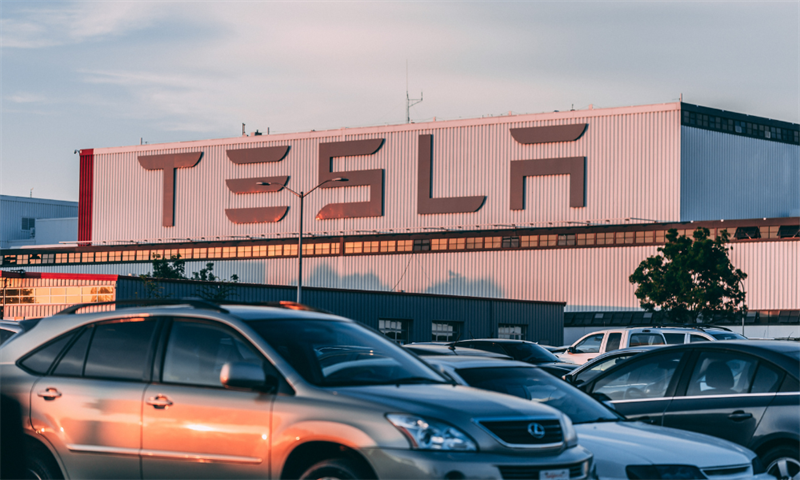Tesla has officially disbanded its Dojo supercomputer team, marking a major retreat from its once high-profile AI initiative aimed at powering autonomous driving. The decision follows the departure of Pete Bannon, Tesla's vice president of hardware design engineering and the head of the Dojo program, who joined the company in 2016 from Apple. CEO Elon Musk personally ordered the shutdown, and remaining team members are being reassigned to other projects, according to people familiar with the matter.
Once hailed by Musk as Tesla's "ultimate weapon" for full self-driving (FSD), Dojo was designed to process vast amounts of video data from Tesla's global vehicle fleet to train AI models. Initially unveiled in 2019 and backed by custom-designed D1 chips, the project was positioned as Tesla's strategic pivot from carmaker to AI leader. At its peak, Musk even floated plans to commercialize Dojo as a cloud service rivaling AWS.
Despite years of investment exceeding $1 billion—including a $500 million factory expansion last year—Dojo's progress faltered amid technical hurdles and mounting commercial pressures. In 2024, Musk publicly admitted Dojo's future was "uncertain." The final blow came with the defection of around 20 core engineers to AI startup DensityAI, draining the project's remaining momentum.
Tesla's retreat reflects broader headwinds facing the company: declining EV sales, shareholder discontent over Musk's political controversies, and escalating pressure in the AI chip supply chain. Unable to secure sufficient GPUs from Nvidia, Tesla recently signed a $16.5 billion agreement with Samsung to manufacture its next-generation AI6 chips at Samsung's Texas facility. The company is now shifting entirely to external partners such as Nvidia, AMD, Intel, and Samsung—abandoning its dual-track strategy of in-house and outsourced development.

The collapse of Dojo also prompted a sweeping supply chain overhaul. According to ZDNet Korea, Tesla is moving away from its longtime partner TSMC and forming a new dual-supplier strategy for Dojo 3, its next-gen system. Samsung Foundry is expected to handle front-end wafer manufacturing, while Intel will take on advanced packaging using its proprietary EMIB (Embedded Multi-die Interconnect Bridge) technology. This collaboration marks an unprecedented cross-company effort, with both giants seeking to win favor from large clients amid rising demand for AI chips.
Dojo 3, which was to integrate Tesla's custom D3 chips with the new AI6 architecture, aimed to support a broad range of applications from autonomous vehicles to humanoid robots and data centers. Tesla had claimed the AI6 would be built on a 2nm process and offer modular scalability—from two chips per car to 512 per server rack.
However, industry analysts say technical limitations around packaging Tesla's ultra-large chips—previously handled using TSMC's System-on-Wafer technology—likely contributed to the shift. TSMC's limited appetite for low-volume, high-complexity packaging may have created an opening for Intel and Samsung to offer more attractive terms.
Tesla's move to wind down Dojo is a stark reversal from just last year, when Musk said the company's Cortex and Dojo clusters would deliver one of the world's top five compute infrastructures by 2025. On a July earnings call, Musk predicted Dojo would be "operating at scale" by next year—equivalent to 100,000 Nvidia H100 chips.
The abrupt end of the six-year effort underscores Tesla's shifting priorities as it races to refocus on near-term AI applications like robotaxis. The company is currently piloting a robotaxi service in Austin, with human supervisors onboard, and running a related service in San Francisco.
Meanwhile, Musk's separate AI venture, xAI, continues to pursue large-scale language models in competition with OpenAI and Google. He recently acknowledged that some top AI engineers preferred working on AGI (Artificial General Intelligence) instead of Tesla's narrower focus on real-world AI for vehicles and robotics—prompting him to establish xAI as a separate entity.
Tesla has seen a string of executive departures this year, including the heads of its robotics, software, and manufacturing divisions. The dismantling of Dojo further highlights a company recalibrating its ambitions amid growing technological complexity, capital constraints, and a rapidly evolving AI landscape.
Despite the bombshell news, Tesla's shares slipped less than 1% in after-hours trading.
+86 191 9627 2716
+86 181 7379 0595
8:30 a.m. to 5:30 p.m., Monday to Friday
